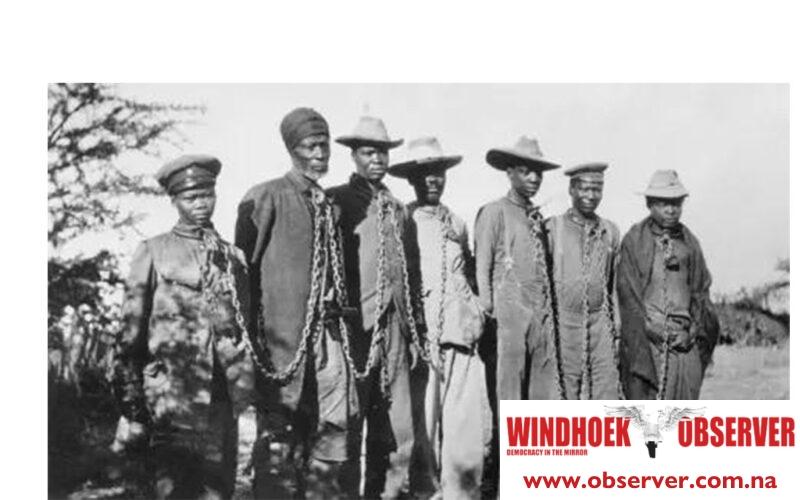Erasmus Shalihaxwe
Political leaders have expressed dissatisfaction with the Genocide Remembrance Day programme.
Today marks the first commemoration of the day after the Cabinet declared 28 May as Genocide Remembrance Day last year.
The event will take place this morning at Parliament Gardens in Windhoek.
Joseph Kauandenge, leader of the Association for Localised Interest (ASOLI), expressed disappointment that traditional chiefs from genocide-descended communities would not speak at the event.
The official programme shows that President Netumbo Nandi-Ndaitwah, Vice President Lucia Witbooi, and Council of Traditional Leaders Chairperson Gaob Immanuel Gaseb will be the main speakers.
Kauandenge said the government failed to include key voices.
“The administration of President Ndaitwah has erred greatly, and history will record this as a travesty and a slap in the face of those descendants’ truthful representatives, who have been ignored on purpose,” he said.
He said it is wrong for the government to exclude the affected communities on a day meant for them to remember the suffering of their ancestors.
“President Ndaitwah must take note that history will not be kind to her and her administration. At its first official commemoration, she chose to ignore the very same people who had fought tooth and nail to have this day declared a public holiday in remembrance of their fallen heroes. Her government should have been extra sensitive to the descendants by combining the government official programme with inputs from the affected communities as well,” Kauandenge said.
He added that the descendants and their traditional chiefs do not feel part of the event.
“So in the final analysis, the various traditional chiefs are correct to say it’s a government-owned program, and it has nothing to do with the descendants. Sad but true,” he said.
Leaders from the Ovaherero and Nama communities said they will not attend the official event. Hours before the ceremony, the Damaran (ǂNûkhoen) community launched its own Genocide Remembrance Day programme.
It will take place at A. Shipena Secondary School Hall.
The two-day event includes poetry, genocide storytelling, history presentations, youth performances, and a night vigil at Katutura Cemetery.
The organisers said the program aims to honour ancestors who were “humiliated, robbed of their land, sold as slaves, and massacred” and to remember them in a cultural way.
A morning devotion will be held before participants can choose to join the national ceremony.
Popular Democratic Movement’s (PDM) member Maximilliant Katjimune also criticised the event.
“I’ve just seen the programme for the first genocide commemoration, and I have to say that it is bitterly disappointing and shocking, to say the least. I would have thought that since it was the first commemoration, the program ought to have more weight added to it. Firstly, I’m not sure whether Parliament Gardens is an appropriate venue for such an event to begin with,” he said
He added that there seems to be a gross under-representation of the affected communities in the mere two-hour programme.
“One would have expected that this event would provide an opportunity for cultural performances and displays that reflect the atrocities of the genocide, but there are none included in the programme. The programme is just bleak. More than 100 000 Namibians lost their lives during the genocide. The programme, with all due respect, does not reflect the severity of this,” Katjimune said.
Tensions over the programme come as communities still feel excluded from the German-Namibian negotiations on the genocide deal.
The €1.1 billion (about N$22 billion) offer Germany pledged over 30 years for development in affected areas remains unfinalised.




